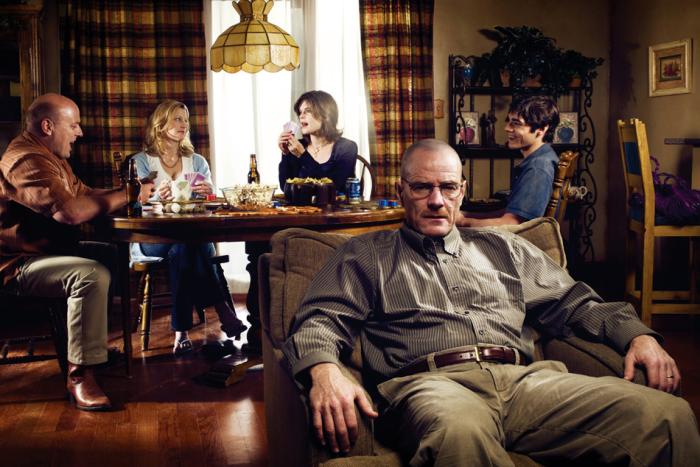Nothing Can Hurt Me, the recently released documentary on ’70s power pop auteurs Big Star, is a story of redemption. And why shouldn’t it be? Badly neglected during their brief, fragmented lifespan, history has crowned Big Star one of the winners. Their music is essential to anyone with the slightest interest in indie rock, pop songcraft, or late-capitalist guitar sounds.
Late in the film, though, there’s a scene with the siblings of co-frontman Chris Bell that turns this narrative back onto itself. The life and times of Alex Chilton are best understood as those of an incredibly gifted child star. He’s the dominant figure in the Big Star story. Bell, the cult band’s cult figure, left Big Star after their #1 Record debut, struggled with his sexuality, addiction, and Jesus leanings, and died in a one-car accident at the age of 27. Reflecting on Bell’s legacy, his sister admits, plainly, that she would rather have her brother back than have him famous.
Certainly, Nothing Can Hurt Me doesn’t hide from the disappointment or angst Big Star’s members felt at the time. But the disconnect between Bell’s sister and the endless parade of rock talking heads singing Big Star’s praises is startling. Her words practically demolish the film’s three-part structure, turning the gradual acceptance of Big Star into a conflicted post-script. The music got there, one man never did.
Chilton, meanwhile, had the luxury of living to see Big Star recognized. He also got to publicly, and at times petulantly, work through Big Star’s failure, often rejecting all the melody, beauty, and melancholic vigor that had made Big Star so magical. The more one thinks about Bell’s sister, though, the harder it is to see Chilton’s story as a happy one. Although Chilton may have survived and stayed on rock’s radar, the human toll exacted is undeniable. We may all have Big Star, but that part of him was stripped away and burned. He ended up reuniting Big Star and performing the music again, but it was with a bemused glint in his eye, a distance that hints at his former cynicism.
What makes Big Star so hard to reconcile is that, as Nothing Can Hurt Me goes to great lengths to convey, the band badly wanted to make it big. In their minds, #1 Record wasn’t just a perfectly realized record, it was perfectly realized pop. Jim Dickinson, who produced the harrowing, temporarily unreleased Third/Sister Lovers, suggests that Big Star’s problem was their insularity. They were creatures of the studio, precocious kids who made their grand statement without having had to face an audience—or face themselves in that light.
Obviously, Chilton was the exception, but that was a lifetime ago, and with a totally different sound. Dickinson compares Big Star to standing in front of the mirror in your bedroom, strumming a guitar, and mistaking this for the outside world. Sometimes, narcissism is anything but bombastic. There’s a circularity to Big Star’s story that might be its most comforting feature. They never wanted to be part of the underground, and indeed, Big Star today is hardly esoteric. People commit their songs to memory, live and cry by them, take them on as pop in the most fundamental sense. The music has ended up where they always wanted it to be, but where does that leave the people who made it? Ambition means very little if there’s nobody left to enjoy it.
In Nothing Can Hurt Me, the surprise is the world’s failure to get Big Star. Here, Death catching on comes as the shocker.
The template for Nothing Can Hurt Me plays for any musician, artist, or writer who had to wait a while to get their due. But there’s a world of difference between Big Star’s better-late-than-never outcome and the story told in A Band Called Death. Death was a trio of African-American siblings who rocked out at outlandish volumes in their family home in Detroit. Active in the mid-’70s, they flirted with the mainstream, recording at the formidable United Sounds Studio and backing out of negotiations with Clive Davis and Columbia when they were asked to change their name to something less off-putting.
Ultimately, Death was a band that released one single locally and, at least from what’s in this film, appears to have never played a live show. Record collectors discovered them decades later; in that context, Death were proto-punk visionaries—who also, for those of you keeping score on eBay, doubled as a seminal Black Rock act.
It’s misleading to say Death never wanted success, though. They did, after all, try to sign with a major label. But they were also willing to sacrifice it all for integrity, a decision as punk as anything in their music. Oldest brother David Hackney was the most uncompromising; he’s also the film’s tragic figure, a dreamer who floats through life while his two siblings eventually settle into life as working musicians in a reggae band. But whereas the last part of Nothing Can Hurt Me feels like payback, a sigh of relief after decades of frustration, A Band Called Death ends on a note of surprise and even disbelief. We see Death’s renaissance constructed through blog posts and a New York Times headline that screamed “This Band Was Punk Before Punk.” In Nothing Can Hurt Me, the surprise is the world’s failure to get Big Star. Here, Death catching on comes as the shocker.
We should probably keep a sense of perspective here. Death, despite the Times and several archival releases, remains a curiosity. They are almost dependent on a certain critical apparatus for their identity, the very cachet that’s enabled them to carve out a place for themselves in history. Big Star, by contrast, is downright mighty: Inventors of a genre, as influential as anyone this side of the Velvet Underground, and more importantly, a band whose confidence in themselves was always grounded in accessibility.
Yet this might also be the reason why A Band Called Death is, in many ways, a human-interest story, a series of characters and events that might make a better Great American Novel than a documentary. When Death reunites (minus the late David) and then tours, it’s a personal triumph. The remaining Hackney brothers aren’t just excited, they’re overcome with gratitude. Their long-lost project has now turned into a real thing, a band that tours and signs autographs all around the world. Music they had left behind has been handed back to them as something legitimate, and they couldn’t be more pleased.
Big Star, by contrast, always assumed legitimacy. It was their fiat. They saw themselves as professionals, putting out product—there’s a near-destructive level of feeling in those songs. And again, Dickson’s assessment of the band’s attitude helps make sense of their disintegration. But maybe it’s not so strange that we end up with such an acute distance between Big Star’s legacy and the scene with Chris Bell’s siblings. Nobody needs to own that success because, from the beginning, they made music for other people to enjoy.




